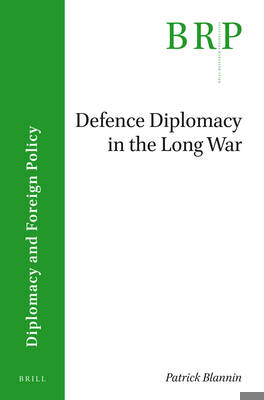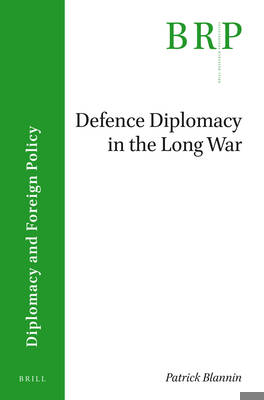
- Afhalen na 1 uur in een winkel met voorraad
- Gratis thuislevering in België vanaf € 30
- Ruim aanbod met 7 miljoen producten
- Afhalen na 1 uur in een winkel met voorraad
- Gratis thuislevering in België vanaf € 30
- Ruim aanbod met 7 miljoen producten
Zoeken
Omschrijving
One of the most dominant security issues of the twenty-first century has been the US led battle against transnational terrorism - the aptly named Long War. Over the past fifteen years the Long War has been examined using multiple perspectives. However, one central mechanism is missing in current Long War analyses: defence diplomacy. Defence diplomacy enhances the diplomatic and security capacity of a state, providing the only link between executive office and the ministries of foreign affairs and defence, two vital institutions in the Long War. Using a case study of US defence diplomacy in Afghanistan from 2001 to 2014, the paper argues simply that the practice of defence diplomacy far outweighs current theories on what it is, how it works and why it matters. The paper aims to generate a more nuanced understanding of defence diplomacy, as well as identify it as a key component of the US CT/COIN strategy to achieve their Long War policy objectives.
Specificaties
Betrokkenen
- Auteur(s):
- Uitgeverij:
Inhoud
- Aantal bladzijden:
- 170
- Taal:
- Engels
- Reeks:
Eigenschappen
- Productcode (EAN):
- 9789004352827
- Verschijningsdatum:
- 10/08/2017
- Uitvoering:
- Paperback
- Formaat:
- Trade paperback (VS)
- Afmetingen:
- 152 mm x 231 mm
- Gewicht:
- 136 g

Alleen bij Standaard Boekhandel
+ 256 punten op je klantenkaart van Standaard Boekhandel
Beoordelingen
We publiceren alleen reviews die voldoen aan de voorwaarden voor reviews. Bekijk onze voorwaarden voor reviews.











